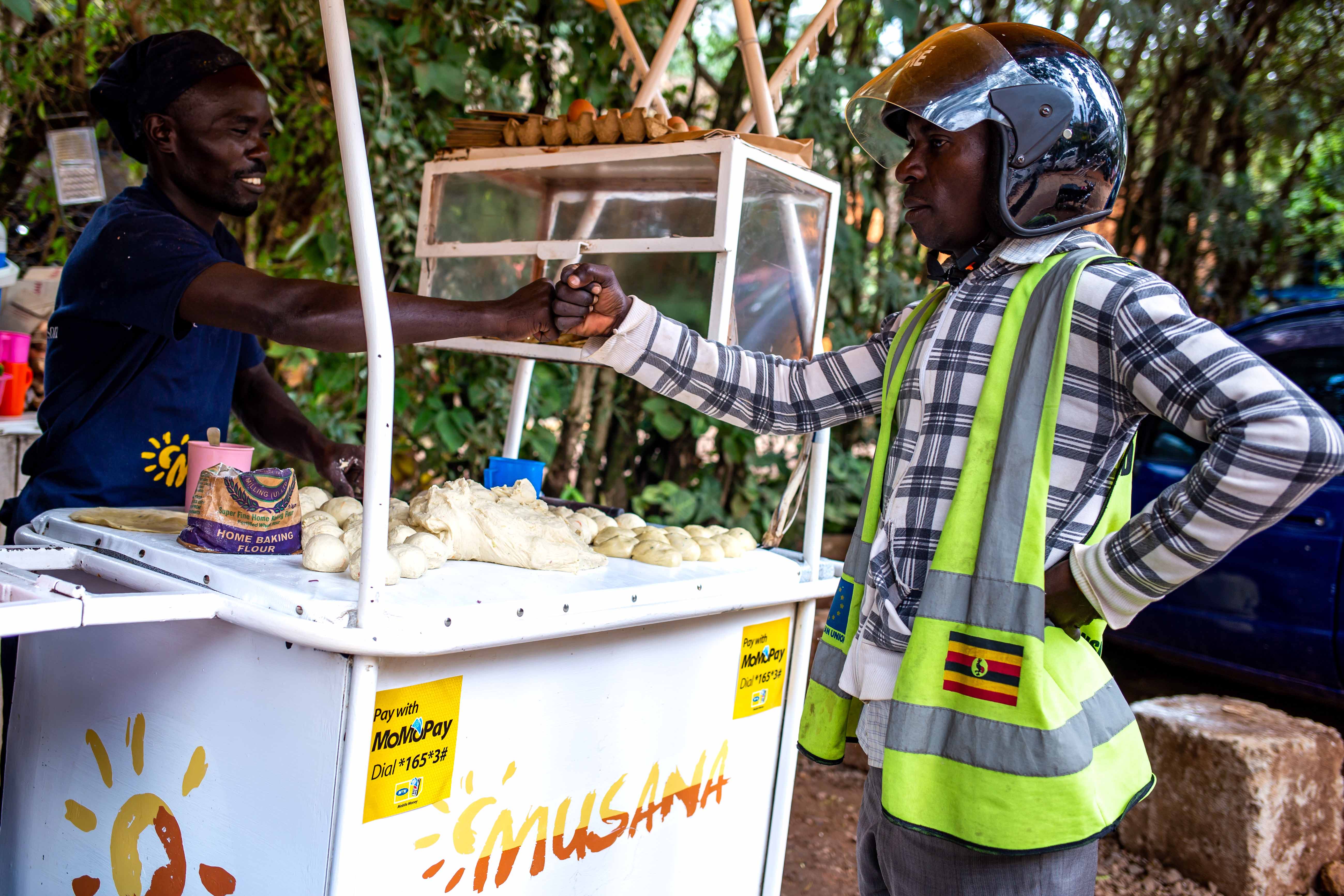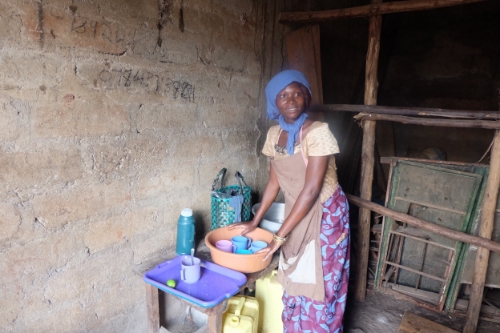

About
Musana Carts provides urban street vendors with a cleaner, safer and more efficient solution to their cooking, storage, and financing needs.


Why Musana?
We see a need in the streets of Kampala, Uganda. And with the help of local vendors we are setting out to address it.
Making the informal sector more productive in urban areas is key.
— World Bank, 2015
Kampala's street vendors work in what is known as an Informal Economy -- they are not officially registered and do not pay taxes. They are essentially illegal businesses. Approximately 2/3 of the workers in the world are employed in the informal sector, which represents a market of $10 trillion dollars worldwide.
In this sector, where government usually sees chaos and uncertainty, we see opportunity and entrepreneurial spirit. We believe in creating legitimate employment in these economies, and in so doing creating a more egalitarian world. Because it is in the informal economy where most individuals are currently able to earn money, to live and to prosper, it is our mission to help co-create that more egalitarian future with them.

Our Mission
Providing efficient infrastructure to street vendors allowing them to conduct and grow their business in a safe, legal and innovative way.

Our Vision
Empowering entrepreneurs in the informal economy by Expanding their business capacity to enhance their freedoms and their standards of living.

Facts
We are the only solar powered food cart manufacturer.
Carts Done
Carts In Kampala
Vendor Challenges
Ultimately, why we do what we do is about the people we serve. Meet our emerging Musana Cart entrepreneurs.

Jocelyn
26 years old, Porridge vendor, pregnant and mother of one girl, Kampala, Uganda
I’m working only in the morning, and my husband doesn’t work, still I succeed to feed my all family, but I struggle and I can’t answer to whole market demand.

Tom
20 years old, Chicken vendor, Kampala, Uganda
I’m working every night to pay my fees for University. I understood that life is a challenge, you cannot wake up on the morning and wait for a mango falling from the tree, you have to sweat and use your energy, to get what you want, it's the only way.

Aisha
30 years old, Soda vendor, Kampala, Uganda
My main expense is to rent the fridge to the owner, I wish I could own one myself but I don’t have the capital to invest, it’s my only solution.
Our Story
A summary of how we got here.
In 2015 The Virgin Group published a study declaring Uganda as the most entrepreneurial country in the world, yet 95% of our population lives on less than $5 a day. We need to double this income to pull ourselves and our comrades out of poverty. Uganda also has one of the fastest growing populations in the world, meeting the food demand is a real challenge for our generation. In the crowded urban space of Kampala many people get their meals from street vendors.
You know Kizza, he sells the most popular street food in Kampala-egg rolls. Everyday Kizza takes home just $7, after selling 200 egg rolls; how can you work so hard and take home so little? Kizza’s major constraint is poor access to energy infrastructure leading to low profitability which is then compounded by operating illegally within the system.
To tackle these challenges, we developed Musana Carts.
Musana Carts are street vending carts providing clean energy to legal businesses on the go. Musana Carts provide access to solar energy, powering customized business features and allow market vendors to operate without the fear of being arrested by city council. Musana Carts are modular, easily adaptable to any street vending business... with a fridge, a cooking stove or a mobile money terminal. With Musana Carts, we build legal microenterprises, as well as provide access to finance and business training.
To make this project a reality it was firstly it was important to secure a sustainable partnership with the local city council. Kizza and his fellow vendors explained to us the high cost of operating illegally-they are constantly having their stoves seized and being arrested. On the other hand, the local city council is facing public outcry about their treatment of street vendors. We agreed with the local city council, it will be a win win solution so every Musana Carts license will allow its vendors to operate freely within the designated zones.
Our team was formed to participate in The Hult Prize, the world’s largest start-up accelerator with over 25,000 applications from around the world this year. Musana Carts has now won the first and second round and are amongst the final 6 teams selected for the grand-global final. The 1st place winner of Hult Prize will receive $1m from President Bill Clinton on 20th September 2016. The remaining 5 teams will receive $200,000 to operate their ventures.
